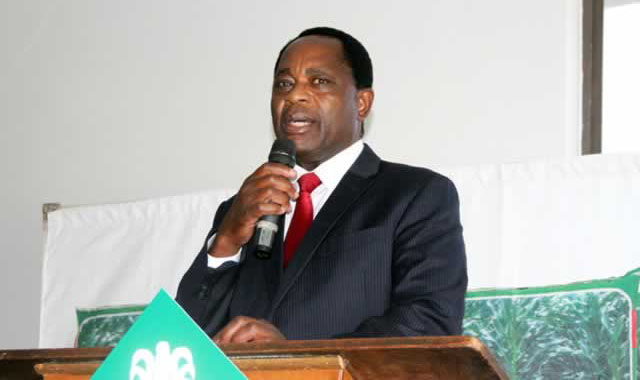When death snatches a community developer

Isdore Guvamombe Reflections
The road from Harare to Mbire stretches due north slowly burying behind it vast swathes of farmland, dotted bucolic settlements and a few mountains, then the town of Mvurwi, past the Great Dyke Range then breaks into communal lands in Guruve.
Past Guruve, the road starts snaking up and down, following the dictates of geomorphology until it drops into Mbire — that floodplain of the Zambezi River.
In Mbire, geography and history condemned the land into inhabitability and it requires resilience for human beings to survive. Unbearable heat, poor and unreliable rainfall patterns, malaria, lack of infrastructure, free roaming wildlife; all bring a pommel of problems to the people.
It is here again that a huge wrap of land is the Chisunga communal lands.
More than two decades ago, as I cut my journalistic teeth, I drove to Chisunga communal lands and I bumped into Chief Geoffrey Chisunga. He was a clever old man with 11 wives. He had been a mechanic in Bulawayo, but later locked away his spanners to become Chief Chisunga.
Tradition had called him to marshal his clan. He was cunning and tricky. He was a huge man with one eye. He spoke a mixture of slang, Shona, Ndebele and English and earned himself the sobriquet Mudhara Wekwamushe (Nice old man).
He had read a few of my stories and on this day he quickly pointed out to me a fact I had forgotten: that my great grandmother Johana (Zhuwana) was his elder sister. The chief took me to Masoka, the remotest of all places under his chiefdom along the Hangwa (Angwa) River.
There he introduced me to his nephew Duster Joseph Chisunga, then a fine young man, who had just gone past his puberty. Young Duster had been involved in wildlife management under the Communal Areas Management Programme for Indigenous Resources (Campfire).
He was one of the few educated ones, if not the only one, in a place where children did not attend school, but specialised in snaring wild animals and fish and gathering fruits. He had just returned from a trip to the United States and had chaired the community’s wildlife committee which bought and erected a solar-powered electric fence around the village to protect the people from marauding lions.
At one stage, the lions had killed seven people in a night. Duster was a community hero. He brought solar-powered cinema to the village, brought a communal grinding mill, a tractor and lorry for the people. He drilled boreholes. Duster brought modernity with wildlife funds. He built a school for the community and pushed for everyone to attend school.
In the same area lived the nomadic Doma people. They lived in mountains and Duster started approaching them to attend school. A few years later, the old chief died and Duster took over. He later became Senator under the chief’s quota.
Death robs when you least expect it. On Thursday last week Zimbabwe lost traditional chief and legislator Joseph Duster Chisunga of Mbire to a road accident.
Chief Chisunga lost control of his vehicle on a black spot near Bakasa Business Centre, where the road snakes into hairpin curves as it slithers down the Zambezi Escarpment. He was driving himself and had nine passengers. Unfortunately, he was the only casualty. May his soul Rest in Eternal Peace!
Prior to the accident, Chief Chisunga had last been seen at Guruve Centre, where he allegedly had braai and imbibed the last.
At the age of 47, Chief Chisunga had matured and his tracks can be seen in Mbire. He was pivotal in opening the Mbire communal lands to commercial hunting, something that was difficult for a community that survived on poaching since time immemorial.
He was the link between civilisation and his people. He tried very much, even against odds, to drive the development agenda in Mbire. The transformation from poaching to commercial hunting was not easy. Villagers resisted and they needed tangible proof that they could benefit from commercial hunting, hence he used his influence to make sure that the people of Mbire benefit from Campfire proceeds.
In Senate, Chief Chisunga represented a flair of young traditional chiefs who were still the vanguards of our culture, but where intricately balancing culture and modernity. Those who talked to him will certainly remember a dark man who always had a half-smile, deep set eyes, a bulky short frame and a critical mind. He was very careful at what he said.
Death, which is a must, will come when it must! Chief Chisunga will be missed by many.










Comments